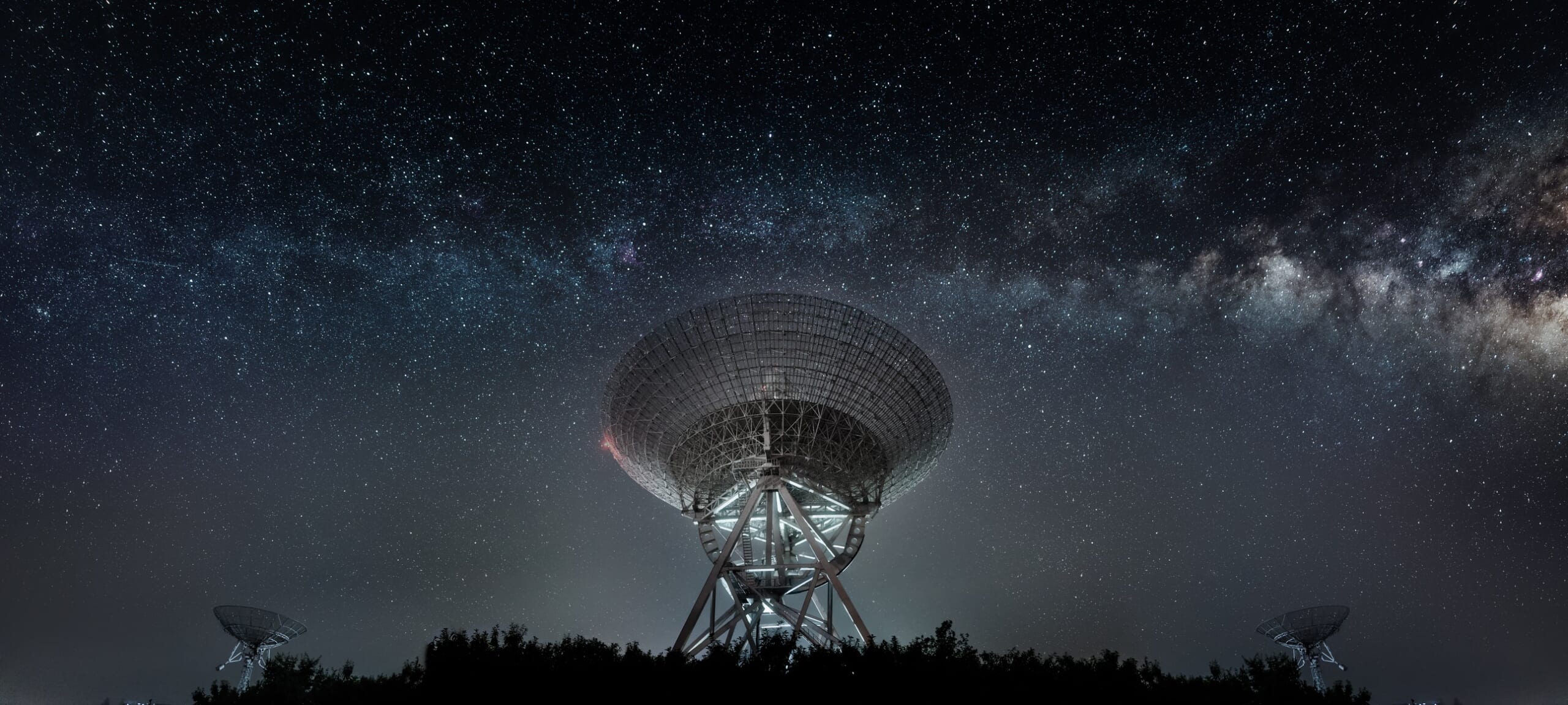A Strange New Signal From Deep Space May Have an Alien Source
“Fast radio bursts” are a scientific mystery.

There’s no way to avoid thinking one thing upon hearing scientists have listened to powerful, mysterious signals blasting from the depths of space: aliens.
OK, that may be avoidable. Still, there’s no doubt that detection of what astronomers call “Fast Radio Bursts” (FRB) is the kind of thing worth noticing because FRBs are weird.
The origin of the signal recently detected by scientists with the Canadian Hydrogen Intensity Mapping Experiment is — as with all FRBs — unknown. It was picked up by experiment’s powerhouse telescope located in British Columbia. What makes it significant is that it’s the first such signal heard on a particular frequency — between 400 and 800 megahertz.
That means that compared to previous, similar signals detected in the last 11 years, this one — the poetically named FRB 180725A — has some serious bass in its voice. It’s like hearing a chorus of trumpets then someone drops a tuba in the mix.
The difference is significant enough that it made astronomers sit up and take notice. After all, FRBs are strange enough as it is. They didn’t seem to fall into any discernible pattern until recently, when scientists found a series regular enough to keep an ear out for them.

One of the most intriguing facts, however, is simply that researchers can’t figure out just where they’re coming from. Not knowing the origins of things has been driving scientists bananas for centuries, and this is no different. In this case, that makes the question of whether this comes from aliens or not pretty rational. The very nature of the signals is strange enough; they shoot like bullets from space but then rapidly fade.
Some theories say FRBs emanate from a neighboring galaxy. Others say they’re coming from some incredibly remote part of the universe.
We say they’re echoes of some great alien civilization testing bass levels from a new set of speakers installed in a tricked-out spacecraft.
At this point, that’s as good an explanation as any.
